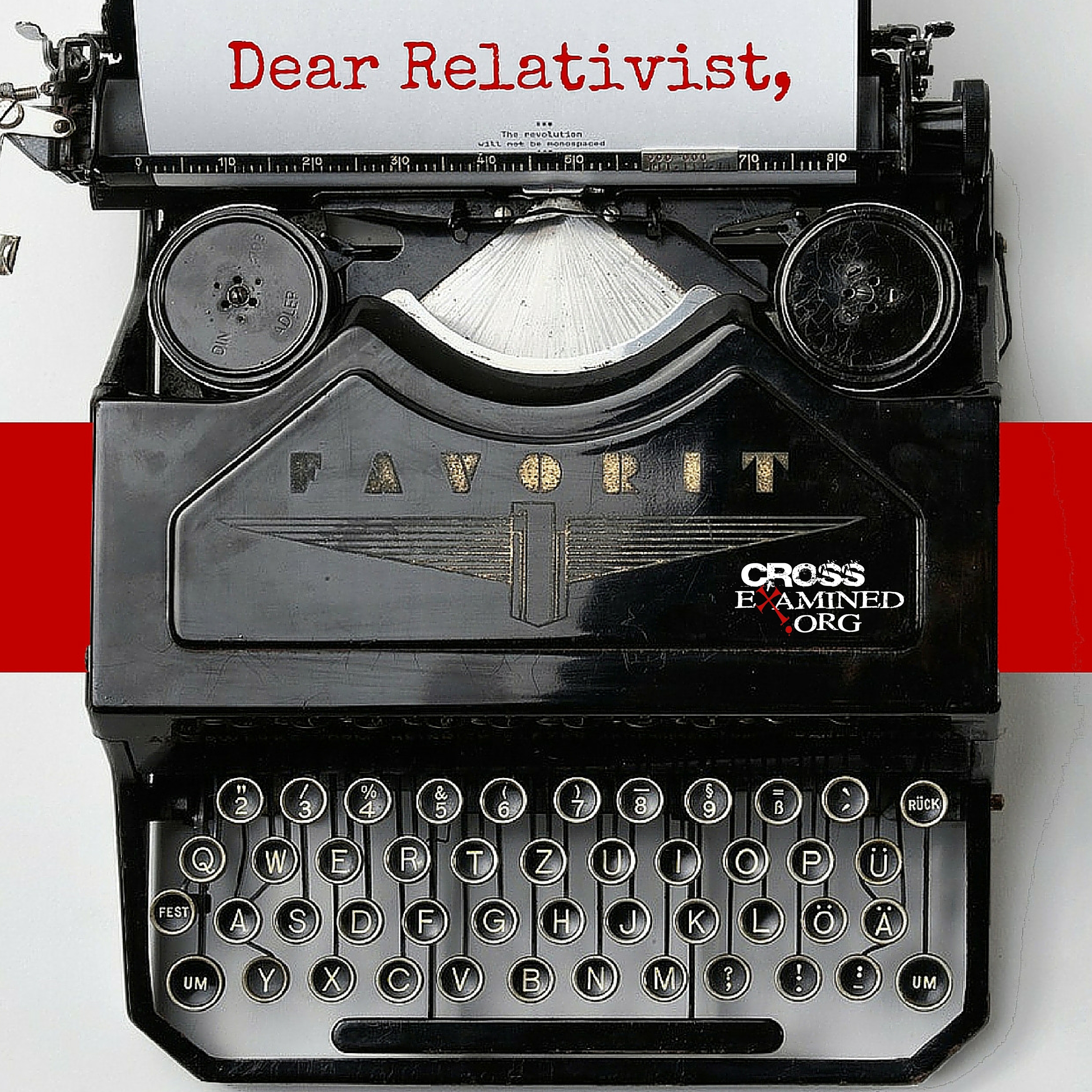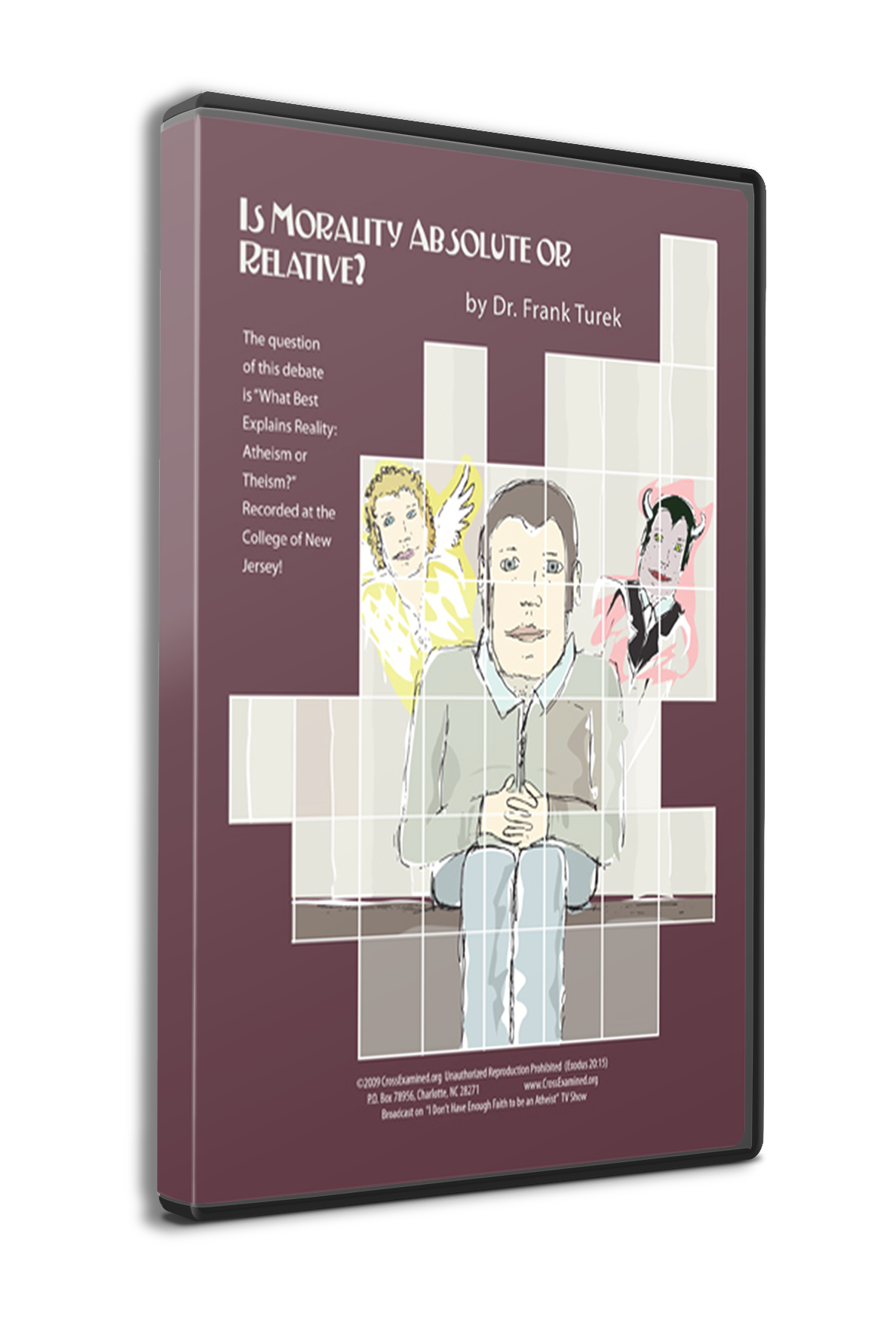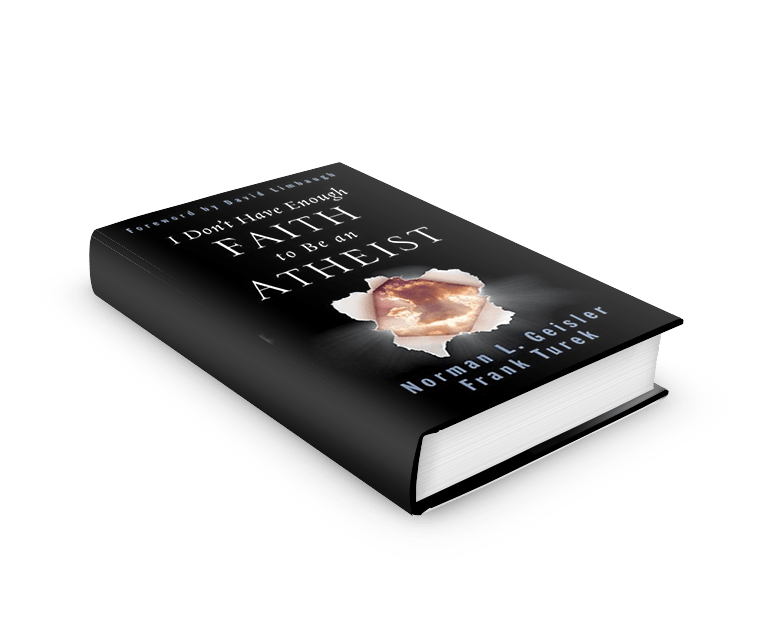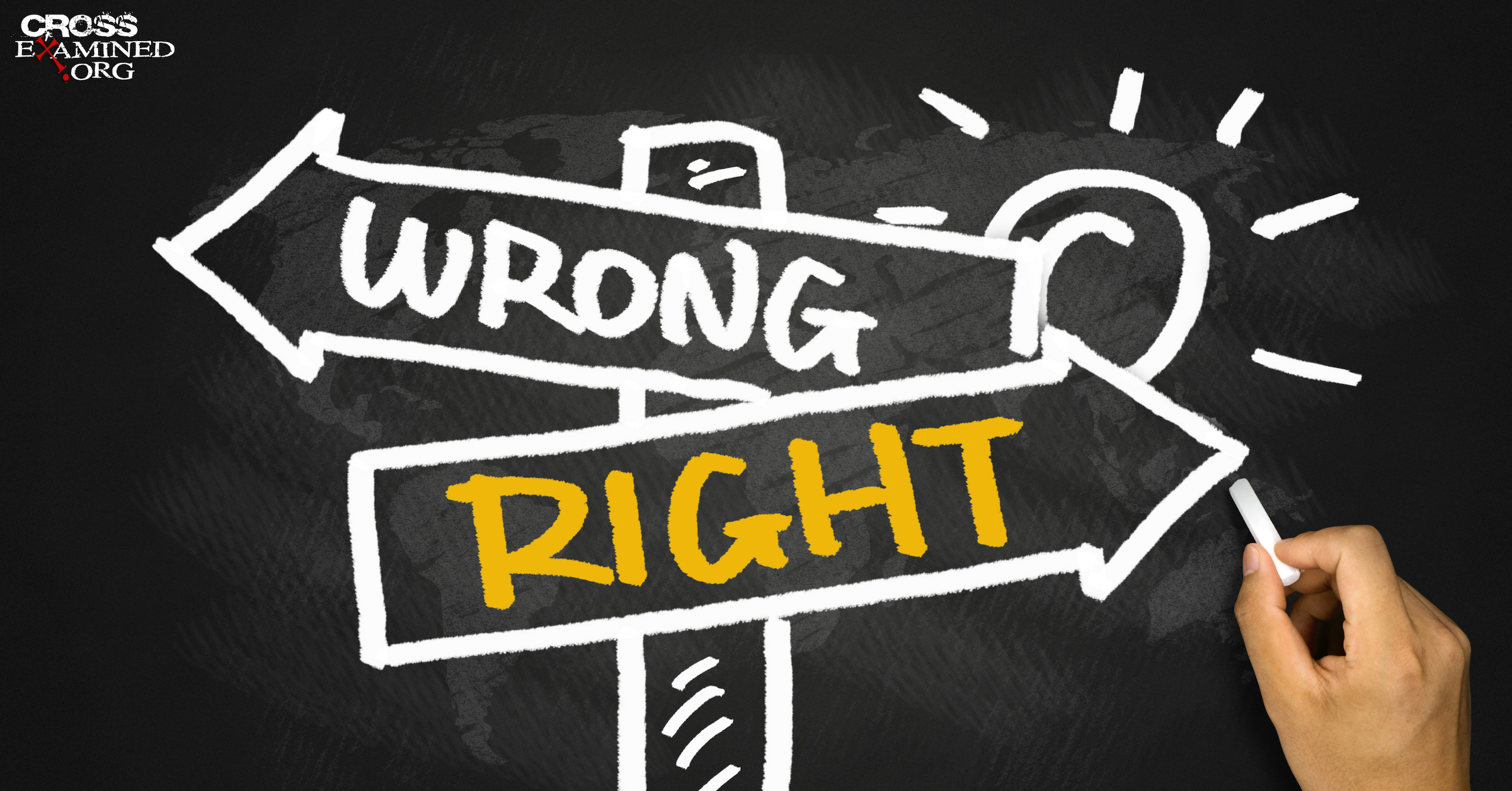Do objective morals exist? That is to say, are certain actions right or wrong irrespective of what people think? Philosphers and moral scientists have wrestled over the question of objective morality for centuries. Prior to the Enlightenment, objective morality was a given. The foundation for which was the nature of God himself.
Since the Enlightenment, however, brilliant minds have sought to find other explanations for objective morals using only the natural world, and this pursuit has proven to be quite difficult. As a result, naturalism — the belief which denies any supernatural or spiritual realities — has bred scores of moral nihilists. Contemporary atheist Richard Dawkins sums up this view nicely when he writes, “The universe we observe has precisely the properties we should expect if there is, at bottom, no design, no purpose, no evil and no good, nothing but blind, pitiless indifference.”[i]
Many skeptics, on the other hand, wish to avoid such a depressing outlook. After all, human experience seems to suggest that some actions are objectively good or evil. Therefore, instead of adopting moral nihilism, other naturalists adopt the view known as moral realism seeking to maintain objective moral values and duties.[ii] But can this view hold up to scrutiny? Have philosophers and scientists been able to ground morality in some place other than God?
In this article, I will demonstrate that theism provides the only basis for objective morality. I will support this thesis in two ways. First, I will evaluate the different explanations naturalists have used to ground morality and show them to be wanting. Second, I will substantiate the claim that theism accounts for objective morals despite skeptics’ objections.
Naturalism and Morality
In Letter to a Christian Nation, Sam Harris remarks, “Questions of morality are questions about happiness and suffering… To the degree that our actions can affect the experience of other creatures positively or negatively, questions of morality apply.”[iii] A self-described atheist, Harris adopts a totalitarian approach which argues that we can ground morality in the pleasure or misery of individuals.
In his more critiqued book, The Moral Landscape, he defines the “good” as that which supports the well-being of “conscious creatures.”[iv] But why, given atheism, should we think that the flourishing of human beings is objectively good? Where, exactly, in the natural world do we learn this objective truth? Harris fails to provide an explanation for this assertion. He simply equates “good” with “human flourishing” without any justification in what amounts to equivocation and circular reasoning.
Is/Ought Fallacy
Harris’s attempt to ground morality in human flourishing fails on at least two additional fronts. First, Harris is guilty of committing the is/ought fallacy. Generally speaking, someone commits the is/ought fallacy when they attempt to make value judgments using science.[v] Science, after all, only explains what “is,” not how things “ought” to be. For example, science tells us how us how to make an atomic bomb. It cannot, however, tell us whether we ought to use it. Harris believes he can prove his point by demonstrating that science tells us how to make life more conducive. But what exactly does this prove?
Of course advancements in science have aided in human flourishing. Science also tells us how to make life more conducive for corn and rabbits. But that does not mean it is morally evil to prohibit the flourishing of corn. Because Harris cannot ground objective morality as the term is philosophically understood, his only recourse is a semantic sleight of hand in which he redifines the word “good” to mean human flourishing. Even still, though science tells us how to promote human flourishing, it does not tell us that we “ought” to promote human flourishing.
Naturalistic Determinism
The second fatal error to Harris’s argument is his commitment to naturalistic determinism. As someone who affirms objective morality, Harris affirms that we “ought” to act a certain way. Yet he rejects the notion of free will at the same time.[vi] He goes so far as to state that free will is merely an “illusion.”[vii] As a naturalistic determinist, Harris holds to the view that every event is the result of a chain reaction which has been causally determined by the laws of physics and chemistry. In essense, humans act in robotic fashion and possess no volitional control over of their actions.
This position is paramount to agreeing with Richard Dawkins when he states, “DNA neither knows nor cares. DNA just is. And we dance to its music.”[viii] We expect Dawkins to make a statement like this since he denies objective morality. We would not, however, expect Harris to affirm determinism since it undercuts his moral argument. After all, he notoriously condemns religious people for their agregious actions. But given Harris’s determinism, can he really blame them? Does he not believe that their actions were spring loaded at the Big Bang and carried out by the inflexible laws of physics and chemistry?
Naturalistic Reasoning?
The problem for Harris’s determinism runs even deeper. For if naturalism is correct, and human beings are mere matter and nothing else, then rational thought becomes impossible. Rationality is, after all, the ability to adjudicate between arguments and evidence. But how do atoms, molecules, and physical laws make concious decisions? Years ago, C. S. Lewis recoginzed this fatal flaw. He remarks, “A theory which explained everything else in the whole universe but which made it impossible to believe our thinking was valid, would be utterly out of court. For that theory would itself have been reached by thinking, and if thinking is not valid, that theory would, of course, be itself demolished.”[ix] In other words, if Harris is right on naturalistic determinism, it follows that we have no grounds for even knowing if naturalism is true.[x]
In the end, while Harris’s desire to affirm objective morality is commendable, he simply has no rational basis for his claims. He not only commits the is/out fallacy, he also undercuts his position by categorically denying free will of any kind. For these reasons, Harris’s view has failed to attract many suitors. Naturalists, though, have not bailed on the enterprise altogether. Most naturalists aim to ground morality another way — through evolutionary biology.
Morality from Evolution?
Standard Darwinian evolution asserts descent with modification. This process of natural selection acting on random mutations has been the standard view among naturalists for quite some time. And on the surface, this model seems to contradict our modern understanding of morality. For if Darwin was right, then for millions of years, creatures scratched and clawed their way to the top, sometimes killing and eating each other. We can understand, then, how natural selection explains features such as sexual drive, hunger, and fear since these qualities aided in preservation. But how does natural selection explain the phenomenon of altruism? How does sacrificing one’s self for the good of others aid in survival?
Naturalists typically offer two explanations — kin selection and reciprocal altruism. Kin selection theory suggests that species behave altruistically in ways that benefit the rest of their families at their own expense. For example, a monkey might cry out a warning to her relatives if she sees a leapord coming. This cry results in the leapord focusing its attention on her, decreasing her survivability. This sacrifice, however, ensures that the family genes — the same genes shared by the altruistic monkey — will survive and pass on to the next generation.[xi]
Naturalists also argue that altruism arose through reciprical relationships. In what amounts to “you scratch my back and I will scratch yours,” reciprical altruism is similar to bartering where assymetrical species help each other out by providing services that the other cannot provide for themselves. Bees need nectar and flowers need polinating. Or in some cases, animals need bugs and dirt removed from their fur, so another animal will do it for them when they could be out searching for food or a mate. Natural selection, therefore, favors the species that provide services for other species.
Evolution’s Failure
Even if we granted that evolution explains the rise of altruism, that does not solve the naturalist’s problem for a few reasons. First, as one considers the evolutionary rise of altruism, it becomes clear that altruism — especially on the reciprical model — is performed for selfish reasons. In other words, the theory suggests that species do “nice” things for other creatures only because it benefits them in the long run. But now we are talking about self-centeredness — the exact opposite of altruism.
A second critique of the evolutionary model is that it makes morality arbitrary. That is to say, it reaches ad hoc conclusions about the value of human beings. For if Darwin’s theory is correct, all living species descended from a single-celled organism and now form the different branches on Darwin’s tree of life. With this model in mind, who is to say that humans should be treated differently than crickets, rats, or cows? William Lane Craig refers to this inconsistency as “specie-ism,” in that people are showing unjustified bias towards their own species.[xii] Craig is right on this. Given naturalism and the Darwinian model, humans are just one branch of many. Nothing about Darwinism tells us that we ought to act differently from the other species in the animal kindgom.
Take the black widow, for example, who often eats her male counterpart during the mating process. Or consider male sharks who forcibly copulate with female sharks. Do either of these creatures commit moral evils? If not, why would these same actions be wrong for humans since we all belong to the same tree of life? We can certainly appreciate the secular humanists who wish to maintain that humans are intrinsically valuable, but they have no way of grounding this position given their naturalism. Atheist philosopher Michael Ruse admits as much when he writes, “I appreciate that when somebody says, ‘Love thy neighbor as thyself,’ they think they are referring above and beyond themselves… Nevertheless… such reference is truly without foundation.”[xiii]
Evolutionary morality is on even shakier ground when we consider that evolution is, by definition, the unguided process of natural selection. Meaning, if we were to rewind back the time to the very beginning and start over, morality could have evolved quite differently. Human morality could have evolved like black widows and sharks and we would not know any difference.
A third and most damning critique of the evolutiony model is that it cannot even begin to explain why anything is objectively right or wrong. Even if we granted that evolution adaquately explains how species began to act morally, it does not begin to explain why acting in those ways is objectively good. Similarly, naturalists also think that because they can discern morality means that they have solved the problem. Again, William Lane Craig points out this fatal flaw when he exclaims, “I have been astonished at the confusion of moral ontology with moral epistemology on the part of prominent moral philosophers.”[xiv]
In the end, naturalists who attempt to ground objective morals in the natural world fail in their attempt. They might be able to explain the origins of altruism. And they might even know objective morals. But they cannot account for the existence of the moral standard itself and why humans ought to follow it.
Based on the above observations, naturalism cannot ground objective morality. At the same time, however, humans experience a certain “oughtness.” They feel like they ought to love rather than hate, and that they ought to show courage rather than cowardice. These “oughts” are epistemically surprising given naturalism. Yet, they correspond nicely with another worldview.
Theism and Morality
The “oughtness” humans experience fits nicely with a theistic worldview. And while the argument does not hinge on which theistic worldview one embraces, this section will approach the argument from a Christian worldview.
Christians maintain that objective morality is grounded in God himself. Seeing the failings of naturalists to ground morality in the natural world further substantiates the Christian’s claim that the moral law must derive from a different source — namely, a supernatural one.
Dealing with Euthyphro
One popular objection to the Christian position is commonly referred to as the Euthyphro Dilemma. This dilemma was first raised in Plato’s dialogue and goes like this: either something is good because God willed it or else God wills something because it is good.
Notice the dilemma these alternatives raise for the theistic view. For if something is good because God willed it, then it follows that the whatever is good is arbitrary. On the other hand, if God wills something because it is good, then the moral standard exists independent of God.
The problem with this objection, however, is that the skeptic presents the theist with a false dilemma. Meaning, a third option exists which asserts that God wills because he is good. This view argues that far from God’s commands being arbitrary, they are rooted in his perfectly good nature. Or to put it another way, God’s commands are “necessary expressions of his just and loving nature.”[xv] C. S. Lewis was also insightful in this regard. He declared, “God’s will is determined by His wisdom which always perceives, and His goodness which always embraces, the intrinsically good.”[xvi] In the end, the Euthyphro Dilemma is not much of a dilemma after all.
Relativism
Another popular objection to the theist view is that moral truths are relative. Relativists agree that naturalism cannot ground objective morality, but they go one step farther by suggesting that objective morality does not exist at all. To support this claim, relativists point to what they perceive as different moral standards in different cultures. Yet the relativist position fails on multiple fronts.
First, relativists often confuse objective morality with changing behavior. For example, they argue that since Western culture used to think slavery was acceptable, but now it does not, morality then must have changed. This argument, though, is not too different from the is/out fallacy Sam Harris committed. Merely describing the change in human behavior in no way demonstrates that objective morality changed. This view is tantamount to suggesting that the laws of physics changed after Newton because we now have a more enlightened view.
A second objection revolves around moral disagreements. As the argument goes, if there is such a thing as a moral law, why is there so much disagreement on moral issues? Again, the relativists objection is weak here.
Consider the modern debate over abortion. One view believes it is a moral crime since it believes aborition is the murder of an innocent child. On the other hand, those who are pro-choice think abortion is acceptable if that is what the mother chooses. The pro-choice tactic, however, is to redefine what exists in the mother’s womb. They use euphemistic phrases such as “clump of cells” rather than “baby” to justify killing it. What this change in terminology suggests is that both sides agree on the basic moral principle that murder is wrong. One position, though, has changed terminology to justify their view.
This change in terminology is not so different from how the Nazis justified the Holocaust or how Colonial Americans justified slavery. In both cases, they convinced themselves that they were not dealing with human beings of equal value in an attempt to assuage their consciences. So, while on the surface it appears that wide moral disagreements exist among people and cultures, a closer examination shows that root moral issues are pretty similar. Lewis remarks, “If anyone will take the trouble to compare the moral teaching of, say, the ancient Egyptians, Babylonians, Hindus, Chinese, Greeks and Romans, what will really strike him will be how very like they are to each other and to our own.”[xvii] This common understood morality explains why legal codes and religious codes share much in common across all times and cultures.
Image Bearers and Free Will
Given the Christian position, how does one explain this common sense of morality? The answer is rooted in God’s creation of human beings. In the first chapter of the Bible, we read that God made human beings in his image as the peak of his creation (Gen 1:26-27). As image-bearers of God, humans share certain characteristics in common with the Divine. Since Classical Theism asserts that God is a maximally great being, and part of his maximal greatness is his perfect goodness, we are not surprised that humans desire to do good.
Additionally, the perpetual wrestling over ethical issues also coincides with theism. For example, if naturalism is true, humans would simply act upon their strongest impulse brought about by the laws of chemistry in their brain. But humans do not do act this way — or at least they know they should not. Even naturalists recognize we should not act on our strongest impulses when those impulses would lead us to murder, rape, or steal. Yet, this ability to refrain from acting on one’s strongest impulses would be impossible given naturalism. But if God made people as both material and immaterial, it follows that they could adjudicate between competing desires.
While contemplating this very issue, C. S. Lewis suggested, “If two instincts are in conflict, and there is nothing in a creature’s mind except those two instincts, obviously the stronger of the two must win. But at those moments when we are most conscious of the Moral Law, it usually seems to be telling us to side with the weaker of the two impulses. You probably want to be safe more than you want to help the man who is drowning: but the Moral Law tells you to help him all the same.”[xviii]
Lewis recognized that there is more to people than mere physical chemistry. People possess the ability to make volitional decisions contrary to their strongest impulses. And as Lewis suggests, people do so because they are inherantly aware of the moral law. For him, the feeling that we ought to behave a certain way along with the guilt that follows when we fail to meet that moral standard suggests that both a moral law exists, and we were hardwired to live in light of that law.[xix]
Moral Law
These feelings are shared by all people, because all people are made in the image of God, irrespective of their faith. The apostle Paul recognizes as much when he wrote, “For when Gentiles, who do not have the law, by nature do what the law requires, they are a law to themselves, even though they do not have the law. They show that the work of the law is written on their hearts, while their conscience also bears witness, and their conflicting thoughts accuse or even excuse them” (Rom 2:14-15).
According to Paul, Gentiles — those without the written law — are still accountable for their sin for two distinct reasons. First, God has implanted his moral law within them. And second, he has given everyone a conscience by which they can discern if they are living in accordance with that moral law. It is crucial to distinguish between the two. With respect to the moral law, New Testament scholar Douglas Moo contends, “Paul is almost certainly pressing into service a widespread Greek tradition to the effect that all human beings possess an ‘unwritten’ or ‘natural’ law — an innate moral sense of ‘right and wrong.’”[xx] In other words, the moral law is not a Christian invention, but a concept that was easily discernable by Greek philosophers.
Moo goes on to argue that the conscience is the “a reflective mechanism by which people can measure their conformity to a norm.”[xxi] Thomas Schreiner agrees with this assessment. He argues that to “identify the conscience and law, so that both are understood as the source of moral norms, is mistaken. The conscience is not the origin of moral norms but passes judgement on whether one has abided by those norms.”[xxii] Therefore, the reason people experience “oughtness” is twofold. First, God has implanted his moral law within all people. And second, he has instilled in everyone a conscience which either accuses or excuses their actions.
Therefore, theism gives us a sound foundation for objective moral values. It explains the objective moral standard which exists in our universe — rape is evil — and it explains why people feel as if they ought to act a certain way.
Conclusion
As this article demonstrates, theism provides the only basis for objective morality. Since naturalism fails to provide an objective foundation for morality, the only options remaining are moral nihilism or belief that God grounds morality. Atheists who wish to deny God’s existence, therefore, must resort to radical nihilistic positions, even denying the objective evil of events such as the Holocaust.
Experience tells us, though, that this perspective is unliveable. For if those same relativists had been forced into those gas chambers, they would quickly embrace objective morality. In fact, people can usually discern objective morals based on how others treat them. If someone rapes their daughter or burns down their house, they will say things like, “that’s not right” or “that’s not fair” without thinking through the worldview implications of those statements. While many skeptics assert that our perception of reality is merely an illusion, the best recourse is to adopt the worldview that best explains our experiences.
Footnotes
[i] Richard Dawkins, River Out of Eden (New York: Basic Boosk, 1995), 133.
[ii] J. P. Moreland and William Lane Craig, Philosophical Foundations for a Christian Worldview (Downers Grove, IL: IVP Press, 2003), 492.
[iii] Sam Harris, Letter to a Christian Nation (New York: Vintage Books, 2008), 8.
[iv] Sam Harris, The Moral Landscape: How Science Can Determine Human Values (New York: Free Press, 2010), 12.
[v] James Davison Hunter and Paul Nedelisky, Science and the Good: The Tragic Quest for the Foundations of Morality (New Haven, CT: Yale University Press, 2018), 18.
[vi] Sam Harris, The Moral Landscape, 104.
[vii] Sam Harris, The Moral Landscape, 112.
[viii] Richard Dawkins, River Out of Eden, 133
[ix] C. S. Lewis, Miracles (), 21-22.
[x] See a more recent development of this argument in Alvin Plantinga, Warranted Christian Belief (New York: Oxford University Press, 2000), 227-240.
[xi] Richard Dawkins, The God Delusion (New York: Mariner Books, 2008), 247.
[xii] William Lane Craig, Reasonable Faith: Christian Truth and Apologetics, 3rd ed. (Wheaton, IL: Crossway, 2008), 175.
[xiii] Michael Ruse, “Evolutionary Theory and Christian Ethics,” in The Darwin Paradigm (London: Routledge, 1989), 268-269.
[xiv] William Lane Craig, Reasonable Faith, 176.
[xv] William Lane Craig, Reasonable Faith, 182.
[xvi] C. S. Lewis, The Problem of Pain, 100.
[xvii] C. S. Lewis, Mere Christianity, 5-6.
[xviii] C. S. Lewis, Mere Christianity (New York: Harper One, 1952), 10.
[xix] C. S. Lewis, Mere Christianity, 8.
[xx] Moo, Douglas, The Epistle to the Romans: The New International Commentary on the New Testament (Grand Rapids: Eerdmans, 1996), 150.
[xxi] Moo, Douglas, The Epistle to the Romans, 152-153.
[xxii] Schreiner, Thomas R. Romans: Baker Exegetical Guide on the New Testament (Grand Rapids: Baker, 1998), 123.
Recommended resources related to the topic:
Is Morality Absolute or Relative? by Frank Turek (DVD/ Mp3/ Mp4)
Was Jesus Intolerant? (DVD) and (Mp4 Download) by Dr. Frank Turek
Jesus vs. The Culture by Dr. Frank Turek DVD, Mp4 Download, and Mp3
_____________________________________________________________________________________________________________________________________________________
Ryan Leasure holds a Master of Arts from Furman University and a Masters of Divinity from the Southern Baptist Theological Seminary. Currently, he’s a Doctor of Ministry candidate at the Southern Baptist Theological Seminary. He also serves as a pastor at Grace Bible Church in Moore, SC.
Original Blog Source: https://bit.ly/3f7ToQE












